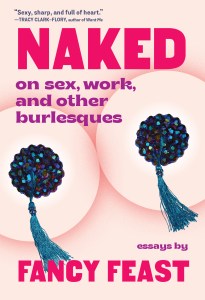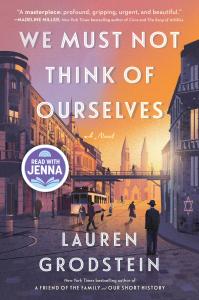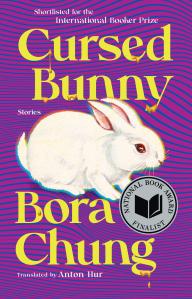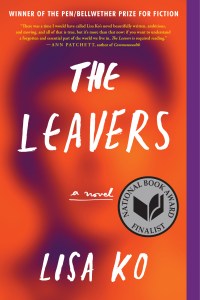Scorpio Season Reads from Algonquin
Happy Scorpio Season! This season’s reading recommendations all come straight from members of the Algonquin marketing department, which is 75% percent Scorpio— hope you enjoy these personalized picks ♏
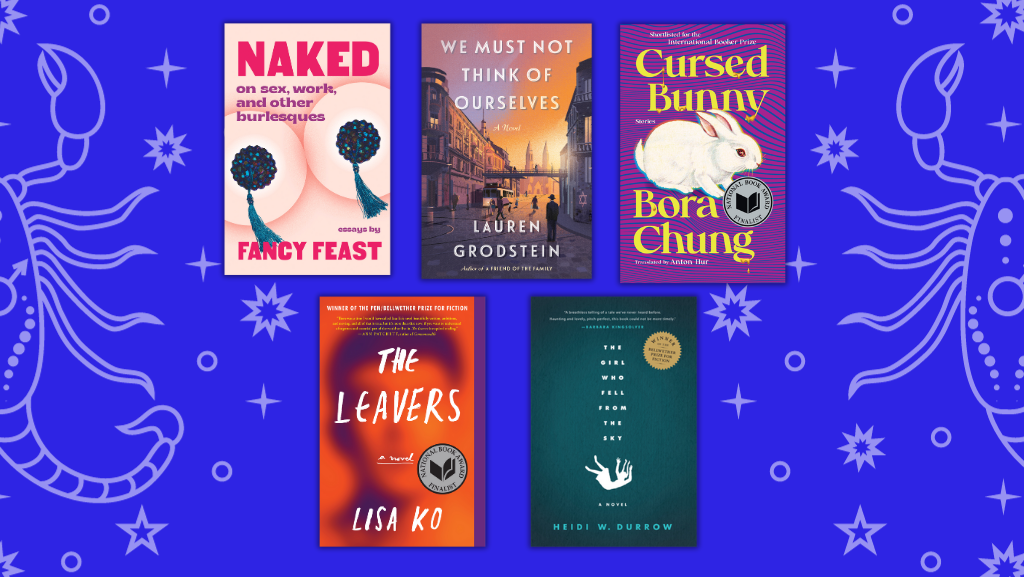
Fancy Feast draws back the curtain to reveal a world that most denizens of the daytime never see. Part exclusive backstage pass, part long-form literary striptease, these essays confront our culture’s tightly held beliefs—like so many clutched pearls—about sex, communication, power, and the messiness of life on the margins of respectability. In “Dildo Lady,” Fancy recounts her time compensating for the failures of the American sex education system while working retail at a sex toy store. In “Doing Yourself,” Fancy tackles fatphobia and dating, self-love, and fantasies. In “Yes/No/Maybe,” Fancy brings the reader from sex parties to polyamorous relationships as she contrasts the undeniable sexiness of enthusiastic consent with the devastating effects of miscommunication and entitlement.
Fancy Feast does this all as a fat woman who makes a living taking off her clothes—a triumphant punch-back at a culture that wants fat people to be self-hating or sexless. For fans of Lindy West and Melissa Febos, Naked is by turns splashy, vulnerable, and always powerful.
On a November day in 1940, Adam Paskow becomes a prisoner in the Warsaw Ghetto, where the Jews of the city are cut off from their former lives and held captive by Nazi guards to await an uncertain fate. Weeks later, he is approached by a mysterious figure with a surprising request: Would he join a secret group of archivists working to preserve the truth of what is happening inside these walls?
Adam agrees and begins taking testimonies from his students, friends, and neighbors. One of the people Adam interviews is his flatmate Sala Wiskoff, who is stoic, determined, and funny—and married with two children. Over the months of their confinement, in the presence of her family, they fall in love. But when Adam discovers a possible escape from the Ghetto, he is faced with an unbearable choice: whom can he save, and at what cost ?
Inspired by the testimony-gathering project with the code name Oneg Shabbat, and told with immediacy and heart, We Must Not Think of Ourselves is a piercing story of love, determination, and sacrifice.
A wildly original debut from a rising star of Korean literature—surreal, chilling fables that take on the patriarchy, capitalism, and the reign of big tech with absurdist humor and a (sometimes literal) bite. Pre-order YOUR UTOPIA, the new book written by Bora Chung and translated by Anton Hur, coming February 2024!
From an author never before published in the United States, Cursed Bunny is unique and imaginative, blending horror, sci-fi, fairy tales, and speculative fiction into stories that defy categorization. By turns thought-provoking and stomach-turning, here monsters take the shapes of furry woodland creatures and danger lurks in unexpected corners of everyday apartment buildings. But in this unforgettable collection, translated by the acclaimed Anton Hur, Chung’s absurd, haunting universe could be our own.
“The Head” follows a woman haunted by her own bodily waste. “The Embodiment” takes us into a dystopian gynecology office where a pregnant woman is told that she must find a father for her baby or face horrific consequences. Another story follows a young monster, forced into underground fight rings without knowing his own power. The titular fable centers on a cursed lamp in the shape of a rabbit, fit for a child’s bedroom but for its sinister capabilities.
No two stories are alike, and readers will be torn whether to race through them or savor Chung’s wit and frenetic energy on every page. Cursed Bunny is a book that screams to be read late into the night and passed on to the nearest set of hands the very next day.
“Like the work of Carmen Maria Machado and Aoko Matsuda, Chung’s stories are so wonderfully, blisteringly strange and powerful that it's almost impossible to put Cursed Bunny down.” ―Kelly Link, bestselling author of Get In Trouble
One morning, Deming Guo’s mother, Polly, an undocumented Chinese immigrant, goes to her job at a nail salon—and never comes home. No one can find any trace of her.
With his mother gone, eleven-year-old Deming is left mystified and bereft. Eventually adopted by a pair of well-meaning white professors, Deming is moved from the Bronx to a small town upstate and renamed Daniel Wilkinson. But far from all he’s ever known, Daniel struggles to reconcile his adoptive parents’ desire that he assimilate with his memories of his mother and the community he left behind.
Told from the perspective of both Daniel—as he grows into a directionless young man—and Polly, Ko’s novel gives us one of fiction’s most singular mothers. Loving and selfish, determined and frightened, Polly is forced to make one heartwrenching choice after another.
Set in New York and China, Lisa Ko’s The Leavers shares a vivid examination of borders and belonging, which earned it the 2016 PEN/Bellwether Prize for Fiction, awarded by Barbara Kingsolver for a novel that addresses issues of social justice.
“Required reading.” —Ann Patchett
National Book Award finalist
Named a Best Book of 2017 by NPR, Entertainment Weekly, the Los Angeles Times, BuzzFeed, Bustle, and Electric Literature
“The Girl Who Fell from the Sky can actually fly.” —The New York Times Book Review
Rachel, the daughter of a Danish mother and a black G.I., becomes the sole survivor of a family tragedy after a fateful morning on their Chicago rooftop.
Forced to move to a new city, with her strict African American grandmother as her guardian, Rachel is thrust for the first time into a mostly black community, where her light brown skin, blue eyes, and beauty bring a constant stream of attention her way. It’s there, as she grows up and tries to swallow her grief, that she comes to understand how the mystery and tragedy of her mother might be connected to her own uncertain identity.
This searing and heart-wrenching portrait of a young biracial girl dealing with society’s ideas of race and class is the winner of the Bellwether Prize for best fiction manuscript addressing issues of social justice.
